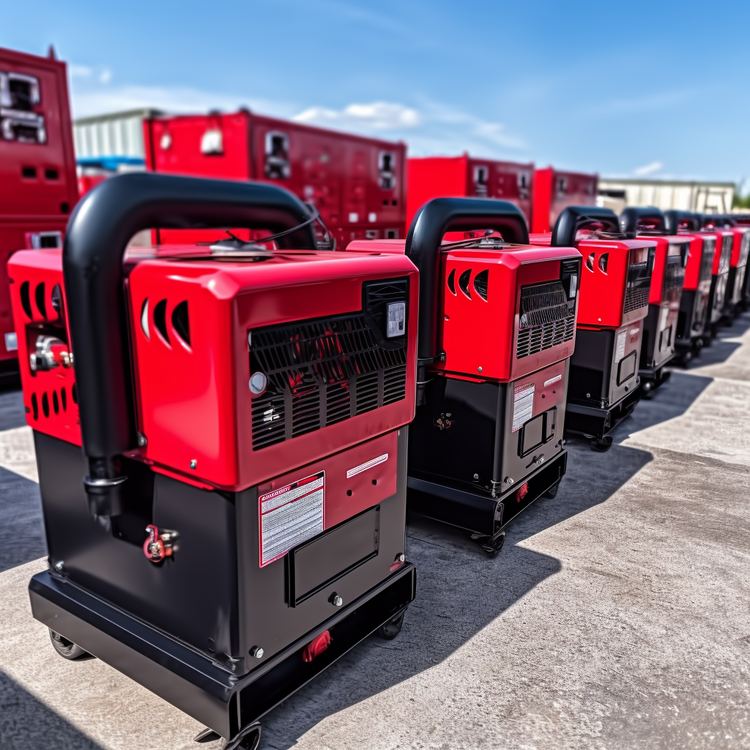Essential Backup Energy Solutions for Commercial Applications
Reliable backup energy systems serve as crucial infrastructure for businesses and residential properties when grid electricity fails. These versatile machines convert mechanical energy into electrical power through various fuel sources, ensuring continuous operation during outages. Understanding the different types, applications, and cost considerations helps property owners make informed decisions about their energy security needs.

Understanding Commercial Battery Backup Systems
Commercial battery backup systems represent a modern approach to power continuity, offering silent operation and instant power switching. These systems store electrical energy in rechargeable batteries and automatically activate when grid power fails. Unlike traditional fuel-powered units, battery systems require minimal maintenance and produce no emissions during operation. They work particularly well for sensitive electronic equipment, data centers, and medical facilities where power quality matters as much as availability.
Battery backup systems typically range from small units supporting individual devices to large installations capable of powering entire buildings. The technology has advanced significantly with lithium-ion batteries offering longer lifespans and faster charging compared to traditional lead-acid options.
Commercial Diesel Generators for Heavy-Duty Applications
Commercial diesel generators provide robust power solutions for demanding applications requiring sustained operation over extended periods. These units excel in industrial settings, hospitals, manufacturing facilities, and large commercial buildings where power outages could result in significant operational or financial losses. Diesel fuel offers excellent energy density and storage stability, making it ideal for emergency preparedness.
Modern diesel generators incorporate advanced control systems that automatically start the unit within seconds of detecting power loss. They can operate continuously for days or weeks with proper fuel supply and maintenance. Sound attenuation enclosures help reduce noise levels, making them suitable for urban environments with strict noise regulations.
Diesel Generators: Fuel Efficiency and Performance
Diesel generators deliver superior fuel efficiency compared to gasoline alternatives, consuming approximately 30% less fuel per kilowatt-hour generated. This efficiency advantage becomes particularly significant during extended outages when fuel costs accumulate. Diesel engines also provide longer service life and require less frequent maintenance intervals.
The fuel itself offers advantages in terms of storage and safety. Diesel has a lower volatility than gasoline, reducing fire hazards, and maintains stability during long-term storage with proper additives. Many facilities choose diesel generators specifically for their reliability during critical operations and natural disasters.
Commercial Generators for Sale: Selection Criteria
When evaluating commercial generators for sale, several factors determine the most suitable option for specific applications. Power output requirements, measured in kilowatts or kilovolt-amperes, must match or exceed the facility’s essential load calculations. Transfer switch compatibility ensures seamless integration with existing electrical systems.
Fuel type selection depends on availability, storage capabilities, and local regulations. Some areas restrict diesel fuel storage quantities, while others may have natural gas infrastructure readily available. Installation requirements, including ventilation, noise restrictions, and maintenance access, also influence generator selection.
Price of Generators: Cost Analysis and Considerations
Generator pricing varies significantly based on power output, fuel type, and features. Portable units suitable for small businesses typically range from $3,000 to $15,000, while large commercial installations can exceed $100,000. Installation costs add 20-40% to equipment prices, depending on complexity and local labor rates.
| Generator Type | Power Range | Price Range | Key Features |
|---|---|---|---|
| Portable Diesel | 5-20 kW | $3,000-$8,000 | Manual start, basic controls |
| Standby Diesel | 20-150 kW | $8,000-$40,000 | Automatic start, transfer switch |
| Commercial Diesel | 150-500 kW | $40,000-$150,000 | Advanced controls, paralleling |
| Battery Backup | 10-100 kW | $15,000-$80,000 | Silent operation, instant start |
Prices, rates, or cost estimates mentioned in this article are based on the latest available information but may change over time. Independent research is advised before making financial decisions.
Operating costs include fuel consumption, maintenance schedules, and periodic load testing. Diesel generators typically consume 0.5-0.8 gallons per hour per 10 kW of output. Annual maintenance costs range from $500-$2,000 for smaller units to $5,000-$15,000 for large commercial systems.
Maintenance and Operational Requirements
Regular maintenance ensures reliable generator performance when power is needed most. Weekly exercise runs help identify potential issues and keep engine components lubricated. Monthly inspections should include checking fluid levels, battery condition, and control panel indicators.
Professional service typically occurs every 200-400 operating hours or annually, whichever comes first. This includes oil changes, filter replacements, coolant system checks, and load bank testing to verify full power output capability. Proper maintenance extends equipment life and maintains warranty coverage.
Selecting appropriate backup energy equipment requires careful analysis of power requirements, fuel preferences, and budget constraints. Whether choosing battery backup systems for clean, quiet operation or diesel generators for extended runtime capability, proper sizing and installation ensure reliable performance during critical situations. Understanding the total cost of ownership, including purchase price, installation, and ongoing maintenance, helps facility managers make informed decisions that protect their operations and investments.




